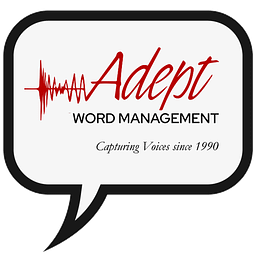In their insightful piece on LitHub, Legs McNeil and Gillian McCain talk about their take on oral history. I stumbled upon this article from 2016 when looking for background to help me explain to a transcriptionist that we don’t censor the speaker.
It’s not all that unusual to encounter a transcriptionist who feels that vulgarity and “swearing” have no place in history. But our goal is always to capture the spoken word, so we perform extensive reviews and watch for any and all kinds of censoring.
As McNeil and McCain point out, “What happened to Johnny and Sable was that Johnny became a fucking totally fucking paranoid fucking speed freak.” A sanitized version of this quote could never be as impactful as the original.
McNeil and McCain’s take on Capturing Voices:
V.
THE IMPORTANCE OF SLANG, GRAMMAR, PUNCTUATION, AND THE INTEGRITY OF THE VOICE
Many of the narrative oral histories that we have encountered clean up the speech patterns so that all of the voices sound alike. Our goal is exactly the opposite, to make each voice accurately reflect each unique speaker. As much as possible we strive to keep the interviewee’s speech pattern intact, not only because it makes the book more interesting and truthful, but because it tells so much about the person being interviewed, and in turn, gives us clues to how much we can count on them as reliable messengers of information.
Swearing is a necessity in the narrative oral history, as well as slang and incorrect grammar. The lack of swearing in the current oral histories we find not only shocking, but blasphemous to the genre. Even books that allow the ubiquitous “damn” are dishonest. One can tell from the emotion emanating behind the speakers words that “damn” just would not cut it. This is a prime example of how the narrative oral historian condescends to its reader and tells us more about the authors than the individual speaking in the book.
For example, in Please Kill Me, our most prolific cusser was Peter Jordan, a former substitute bass player for the New York Dolls. His swearing is so ubiquitous that it served as comic relief: “What happened to Johnny and Sable was that Johnny became a fucking totally fucking paranoid fucking speed freak.”
A sanitized version of this quote could never be as impactful as the original.
To construct narrative oral histories without profanity insults the readers’ intelligence. The oral historian’s job is to maintain the authenticity of the interviewee’s voice, not to judge the words being spoken. If the oral historians have any moral qualms about whether to censor the words in their transcripts, they should choose a new career.
The beauty of the oral history is that it captures the poetry of the spoken word, they way people actually speak—with all the slang and incorrect grammar intact. For without them, it is an inaccurate portrait of the person speaking. So many oral histories we have read are comprised of “clean text.” There is an absence of cussing, pausing, laughing, and modern day speech conventions. Most people use the words or phrases: “like,” “ya know,” or other idiosyncratic speech patterns that are unique to that individual. Without a fair representation of natural speech patterns, oral historians are doing themselves a great disservice and limiting the breadth of the work.
Sometimes an oral historian is given an amazing gift: a speaker who offers the rhythm of storytelling, detailed description, suspense, an arc, keen observations, perhaps a philosophical missive, poetry and very little editing. These are few and far between.

